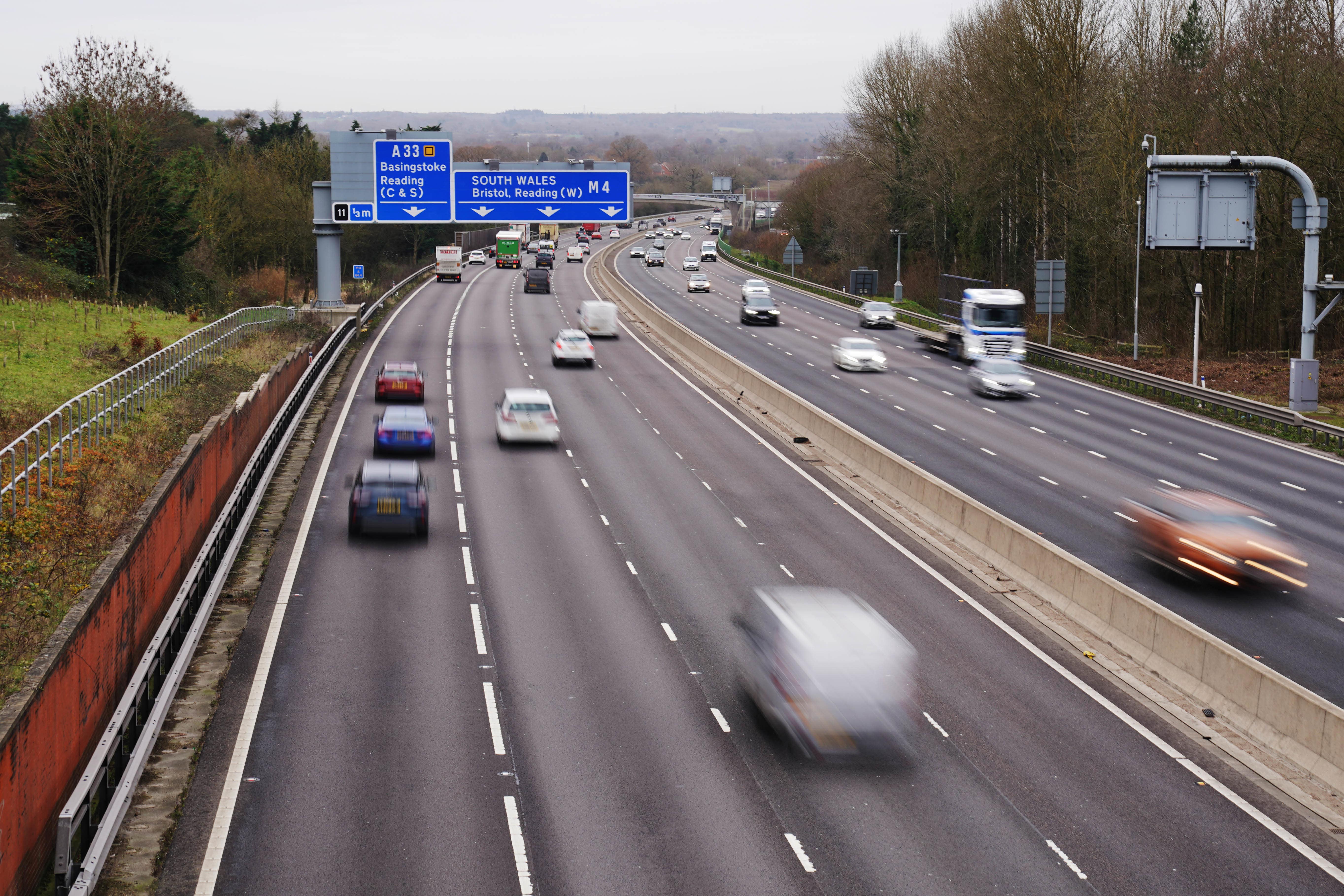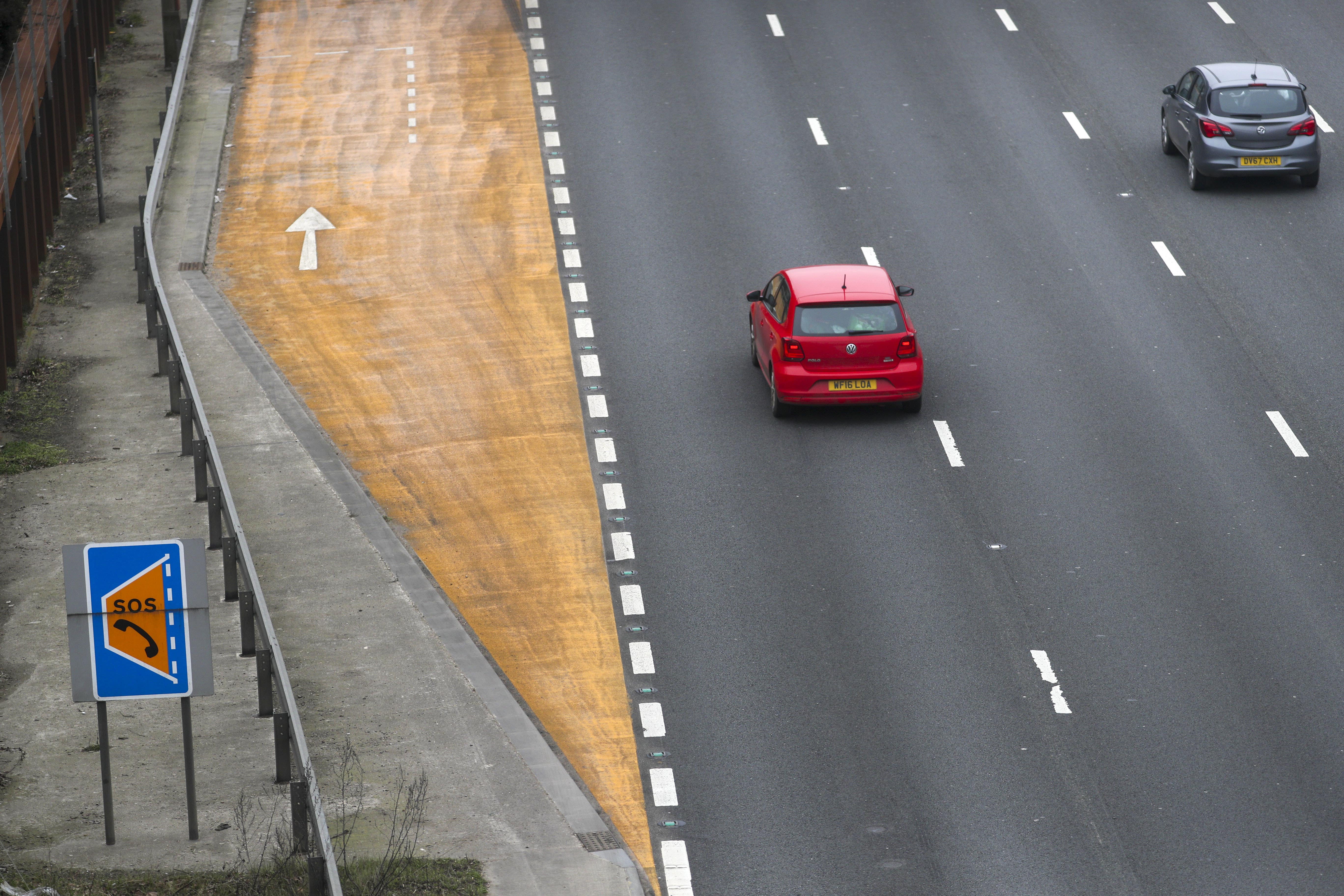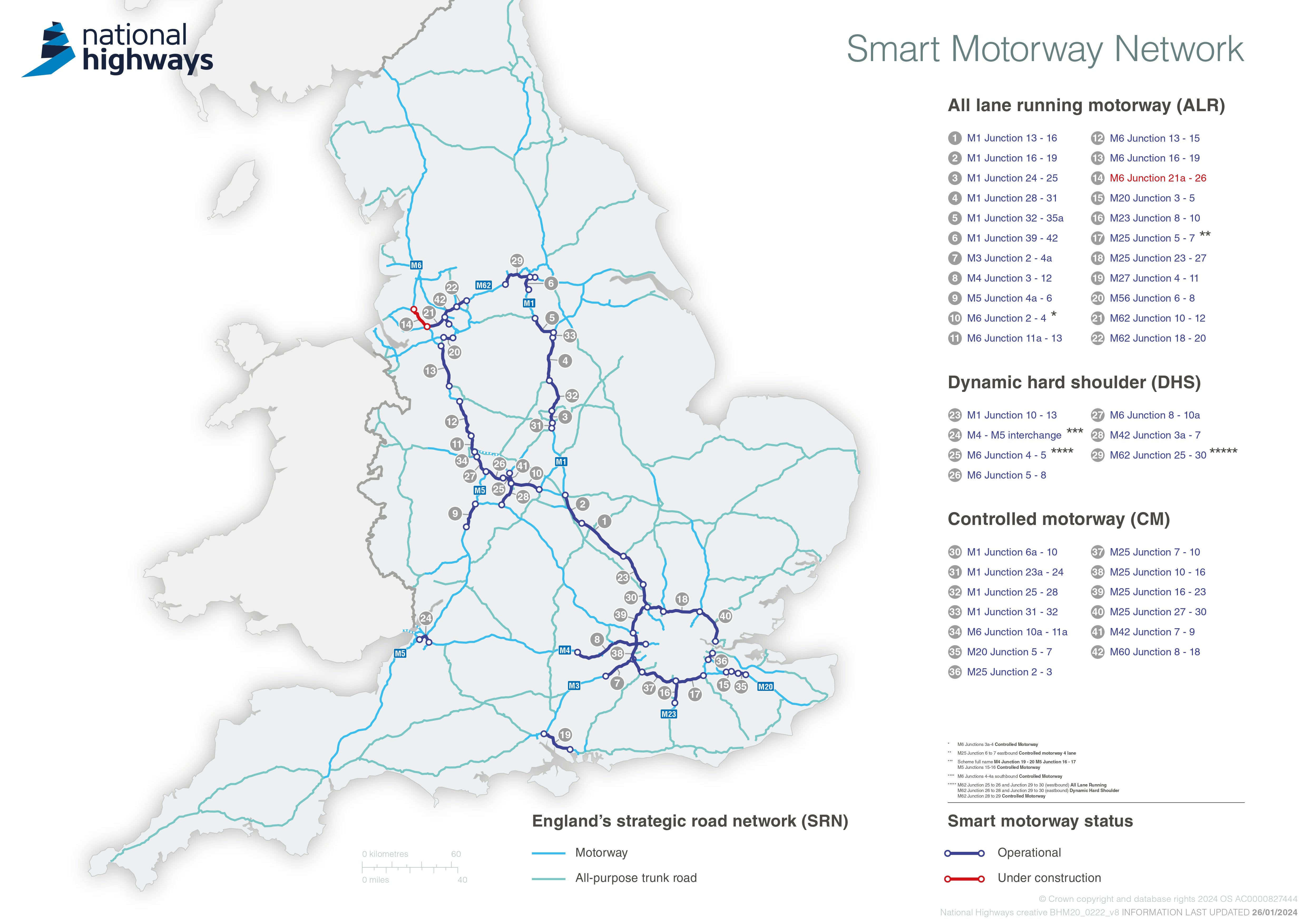RAC demands government brings back hard shoulders and scraps ‘death trap’ smart motorways
Wasted public funds and safety concerns behind the call as MP demands ministers do ‘the right thing’

Your support helps us to tell the story
From reproductive rights to climate change to Big Tech, The Independent is on the ground when the story is developing. Whether it's investigating the financials of Elon Musk's pro-Trump PAC or producing our latest documentary, 'The A Word', which shines a light on the American women fighting for reproductive rights, we know how important it is to parse out the facts from the messaging.
At such a critical moment in US history, we need reporters on the ground. Your donation allows us to keep sending journalists to speak to both sides of the story.
The Independent is trusted by Americans across the entire political spectrum. And unlike many other quality news outlets, we choose not to lock Americans out of our reporting and analysis with paywalls. We believe quality journalism should be available to everyone, paid for by those who can afford it.
Your support makes all the difference.The government has been urged to reinstate hard shoulders on Britain’s smart motorways after being accused of wasting money on the now cancelled projects.
Exactly a year after prime minister Rishi Sunak scrapped all future planned smart motorway developments across the UK, the RAC is calling for either a permanent return of the hard shoulder or “dynamic” lanes which will see them only open to traffic during busy periods.
All-lane-running (ALR) smart motorways have no hard shoulder, with the existing safety lane converted into an extra running lane to add traffic capacity.
The system was introduced as a cheaper alternative to building more lanes and widening existing motorways, with a section of the M25 in Hertfordshire opened as the country’s first smart motorway in 2014.
However, there have been long-standing safety concerns after fatal incidents in which vehicles stopped in live lanes were hit from behind. One campaigner described the highways as “death traps”, while Claire Mercer, whose husband Jason died along with Alexandru Murgeanu when they were struck by a lorry after stopping on the M1 near Sheffield in June 2019, said any delays in reinstalling hard shoulders “continue to put thousands of lives at risk”.
In 2022, charges of corporate manslaughter were considered by South Yorkshire Police when concerns were raised by a coroner after 62-year-old grandmother Naris Begum died on a section of the M1 without a hard shoulder.
A National Highways report published in December revealed that smart motorways without a hard shoulder were three times more dangerous to break down on than those with an emergency lane.

When he cancelled any further rollout of the road schemes in 2023, Mr Sunak cited financial pressures and a lack of public confidence in the roads.
Simon Williams, RAC’s head of policy, said: “There is a real irony when it comes to talking about cost pressures in relation to these distinctly unpopular types of motorway.
“While heralded as a cost-effective way of increasing capacity on some of our busier roads, a colossal amount of public money has since gone into trying to make them safer – for instance by installing radar-based technology to detect stricken vehicles more quickly, plus the creation of additional emergency refuge areas.
“This cash needn’t have been spent. The government ploughed on with building all-lane-running motorways, regardless of concerns expressed by drivers, the RAC and even the Transport Committee.”
Mr Williams added that however the hard shoulders are converted, “queue-busting technology such as variable speed limits could remain to help ensure traffic flows as smoothly as possible”.
Sarah Champion, Rotherham MP and a long-time campaigner against smart motorways, is backing the RAC’s call.
“Government needs to do the right thing and reinstate the hard shoulder to all existing smart motorways and all the schemes under construction,” she told The Daily Telegraph.
“The government knows smart motorways are death traps but rather than saving lives it is saving face and bowing to pressure from National Highways.
“How many deaths do there have to be before common sense prevails?”
Polling by the RAC in 2023 found that around seven out of 10 drivers (69 per cent) wanted the hard shoulder reinstated on ALR smart motorways. At the time, the government claimed it would be too disruptive and expensive to do so.
The number of people killed or seriously injured after a stopped vehicle was hit by a moving vehicle was 0.21 per 100 million vehicle miles travelled on ALR smart motorways between 2017 and 2021.
That compares with 0.07 on controlled smart motorways, which have variable speed limits but retain a hard shoulder and 0.10 on conventional motorways.
National Highways said at the time that evidence shows all types of smart motorways are safer than conventional motorways in terms of deaths or serious injuries, and a series of safety improvements had been made since 2021.
A Department for Transport spokesperson said: “While smart motorways are statistically among the safest roads on our network, we recognise the need for the public to feel safe when driving, and have cancelled plans for all new smart motorway schemes.
“We are also investing £900m to make improvements on existing smart motorways, including building more emergency areas on these roads.”
What are smart motorways and where are they in the UK?
There are three main types of smart motorway:
- Controlled, with permanent hard shoulders like traditional motorways but technology in place to assist with traffic flow, such as variable speed limits shown through digital signs.
- Dynamic, where the hard shoulder can be used as a lane of traffic when the road is busy, although with a reduced speed limit.
- All-lane-running sees the hard shoulder used permanently as a traffic lane, with emergency refuge areas found at intervals for drivers to pull into if necessary, away from traffic.
The majority of smart motorways are around London (including almost all of the M25), the North West and the West Midlands, with more than half of the approximately 400 miles of smart motorway without a hard shoulder.

Additional reporting by PA
Join our commenting forum
Join thought-provoking conversations, follow other Independent readers and see their replies
Comments